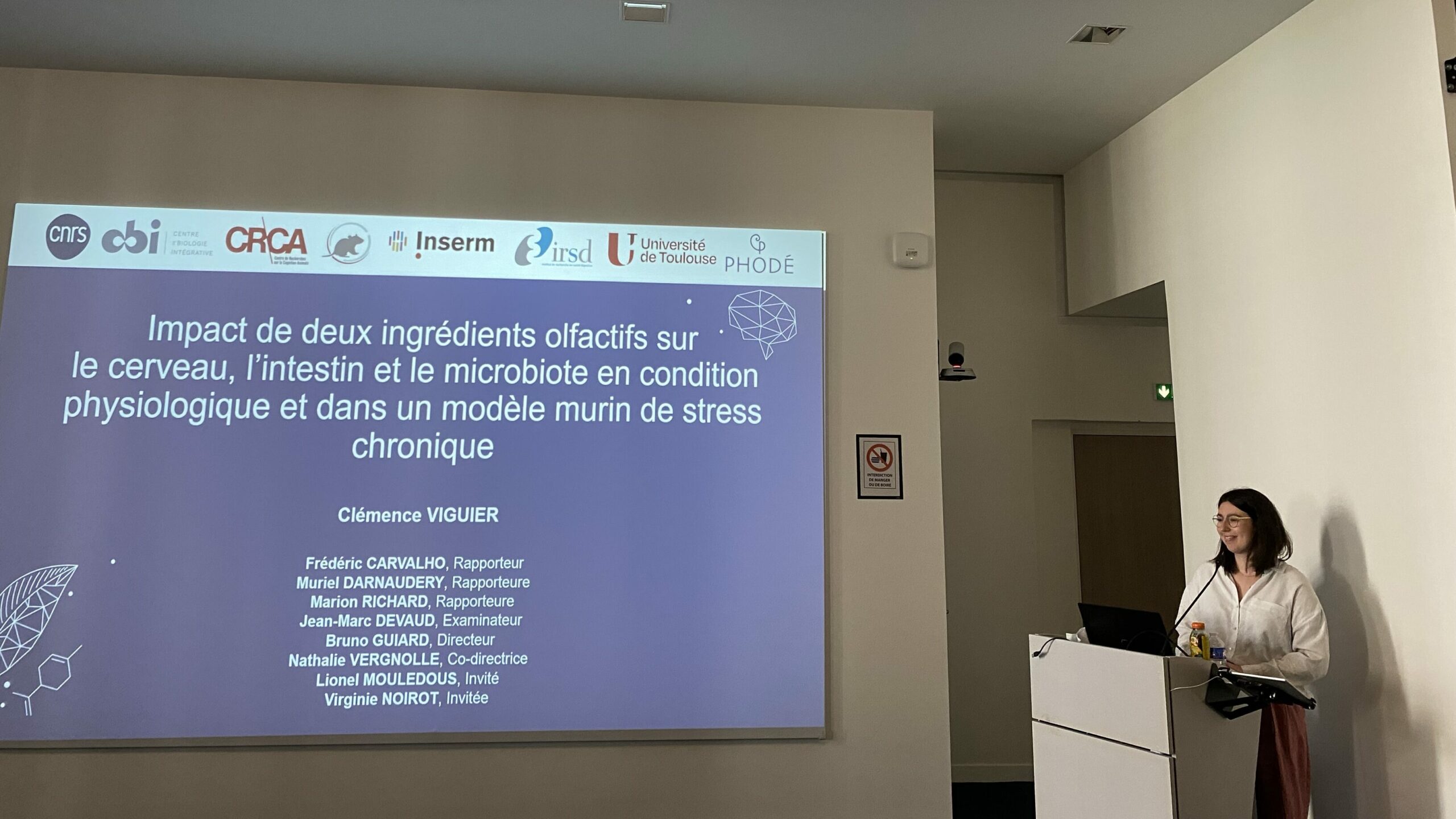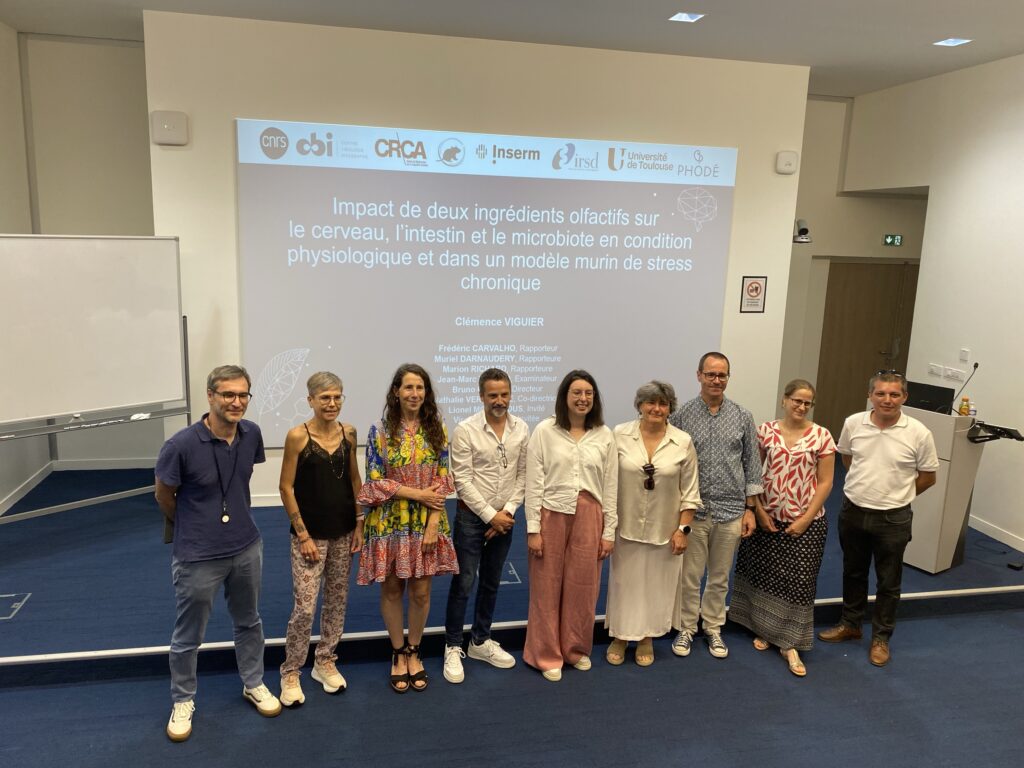
On 17 July, Clémence Viguier successfully defended her doctoral thesis, supervised by our Head of Research, Virginie Noirot. Carried out as part of a CIFRE agreement within the Phodé Laboratories, she is the fourth doctoral student to benefit from this programme in our company, which clearly demonstrates our commitment to collaborative research and scientific innovation.
Research at the Heart of Phodé’s Mission
Since its foundation, Phodé has positioned itself as a scientific company, exploring the physiological effects of aromatic compounds and plant extracts. Our research is structured around two main axes:
- Impact on the brain and behaviour – a historical line of research, initiated in partnership with INRAE in Saint Gilles (doctoral work by Sophie Menneson), and later expanded using a different model with CRCA¹ (Centre for Research on Animal Cognition). These studies revealed the direct influence of certain aromatic compounds on the central nervous system, behaviour, and related physiological outcomes.
- General physiological effects – beyond the brain, we investigate the impact of these compounds on the body, particularly their direct action on the gut microbiota, a theme explored in the theses of Marion Allaoua and Virginie Noirot.
Clémence’s Thesis: Exploring the Brain–Gut–Microbiota Axis in a Context of Stress
Entitled “The impact of two olfactory ingredients on the brain, the gut, and the microbiota under physiological conditions and in a murine model of chronic stress”, Clémence’s work continues this line of inquiry while also opening a new field. While most scientific studies examine the ascending microbiota–brain pathway (as with probiotics and prebiotics), her thesis focused on the descending communication, from the brain to the microbiota via olfaction.
Stress-related disorders – such as anxiety and depression – affect millions of people worldwide and are a major public health concern. Their consequences are not limited to psychological aspects: stress also has harmful effects on the digestive system.
Within this framework, Clémence evaluated the impact of two olfactory ingredients developed by Phodé on central parameters (emotions, cognition, pain, neuroplasticity, neuroinflammation) and peripheral parameters (intestinal motility, barrier function, microbiota) in a murine model of chronic stress. The results showed that these compounds, administered through olfaction, improved certain emotional behaviours while also exerting beneficial effects on digestive function and the microbiota.
This research opens new perspectives for understanding brain–gut communication through olfactory pathways, reinforcing the idea that olfactory ingredients may provide innovative tools in managing stress-related disorders in both humans and animals.
A High-Level Scientific Collaboration
This PhD represents the outcome of three years of research, supervised by Phodé’s Head of Research, Virginie Noirot, and carried out in collaboration with two partner laboratories:
- CRCA (Centre for Research on Animal Cognition, CBI, CNRS), a long-standing partner of Phodé since 2014,
- IRSD (Research Institute of Digestive Health, INSERM), with whom collaboration began in 2021.
The project was co-supervised by Professor Bruno Guiard (CNRS) and Research Director Nathalie Vergnolle (INSERM). Both the jury and supervisors praised the scientific quality of the thesis and the commitment demonstrated by the young researcher throughout this demanding journey.
Phodé, a Company of Science and Innovation
Through this work, Phodé reaffirms its position as a scientific and innovative company. Our research seeks to deepen the understanding of the effects of aromatic compounds and plant extracts on the body, now with an integrated focus on the complexity of brain–microbiota interactions.
By supporting young researchers through the CIFRE scheme, Phodé strengthens its role within the scientific ecosystem and actively contributes to the advancement of applied research.
The completion of this doctoral work marks an important milestone in the scientific recognition and innovative momentum of Phodé.
¹ The CRCA is part of the Centre for Integrative Biology of Toulouse (CBI Toulouse), a research federation bringing together five laboratories in Toulouse. It is jointly supervised by CNRS and Toulouse III – Paul Sabatier University.


